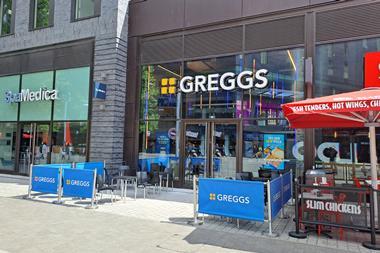It might not quite have reached the level of the much-heralded ‘shareholder spring’ of 2012, but UK investors are once again making their voices heard over executive pay and bonuses.
Yesterday investors at two FTSE 100 companies protested over pay; with 30% of investors in media and advertising firm WPP voting against its pay report and RBS shareholders forcing the bank’s chairman Sir Philip Hampton to defend the level of bonuses payments at its AGM.
Investor concern over pay has certainly sharpened in recent years and the food and grocery sectors have not been immune.
This week Coca Cola Hellenic, which holds Coca-Cola’s bottling licences across much of central and eastern Europe, reported that 14.1% of shareholders voted against its remuneration report, while 16.4% voted against its pay policy.
CEO Dimitris Lois saw his overall pay package rise 33% in the 2013 calendar year to £1.94m, while average employee remuneration fell by 2%.
The shareholder protest at Coca-Cola HBC is not thought to be about perceived largesse of payments, but related to perceptions that the Swiss-domiciled company, which only listed in the UK last year, is not meeting what is considered best practice in the UK. The company’s vote of pay was also advisory rather than binding, as is typical in London-listed firms.

Nonetheless, the mini-revolt is another demonstration that investors have become particularly sensitive to any perceived issue around pay and bonuses.
Last month more than a quarter (26.5%) of Morrisons investors voted down the supermarket’s pay policies, while in May investors revolted against the pay packages handed to execs at Ocado and Reckitt Benckiser (20% voted against Ocado’s remuneration report and 31.5% against Reckitt’s).
It would be little surprise if investor activism more generally became a trend in the UK, according to research from strategic communications agency FTI Consulting. The report found that UK firms were becoming a greater focus for activist US investors, with 40% of activists shifting their focus to Europe and elsewhere.
Edward Bridges, senior managing director in FTI’s strategic communications division and head of the special situations team in the UK, commented: “This shift corresponds to the increasing level of activist engagements the market has seen internationally, particularly in the UK, where almost 50 percent of European activism takes place where corporate governance and legal frameworks are most activist friendly.”
The increasing feistiness of investors does not seem to have fallen on deaf ears.
PwC found that the average FTSE 100 CEO bonus fell 1% last year to £1.14m and close to a quarter did not receive an increase in their basic salaries.
This trend appears evident in pay awards to top executives at food producers and retailers.
Annual reports this week revealed that the pay package of Tate & Lyle’s chief executive officer Javed Ahmed almost halved to £2.73m last year, while Cranswick CEO Adam Couch’s total remuneration fell 24% to £1.09m and total pay to Cranswick executive directors fell by 33%.
Meanwhile, new SABMiller CEO Alan Clark received a total annual pay package worth £6.46m last year. Although direct year-on-year comparisons are difficult given his promotion to CEO in 2013,his total pay fell marginally from £6.7m last year.
Earlier this year it was revealed that executives at Tesco received no bonus for 2013/14, while Morrisons CEO Dalton Philips turned down his bonus and M&S boss Mac Bolland saw his pay package cut by 26%.



















No comments yet